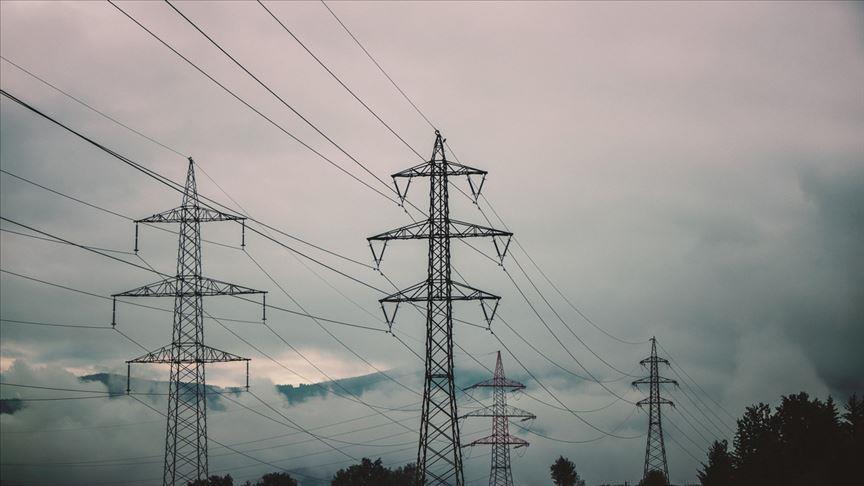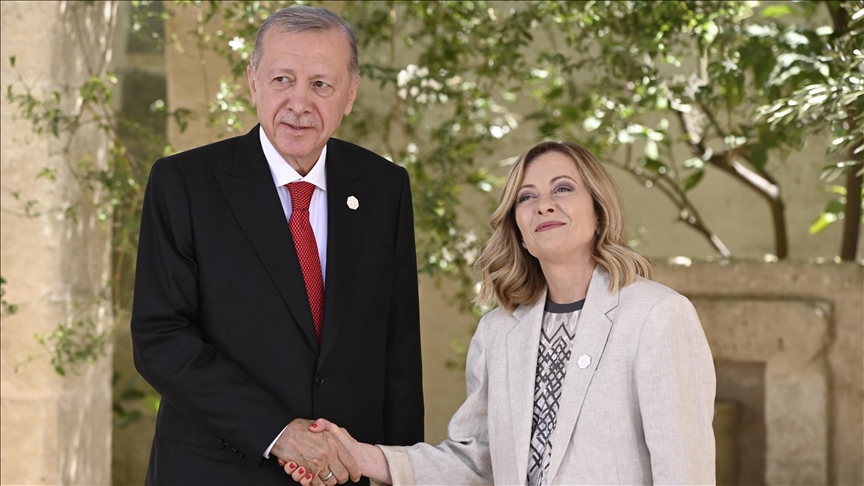In the Middle East, does Turkey hold the key to peace?
The Gaza war is over, at least for now. But whether the ceasefire can hold – eventually bringing security, prosperity, and peace to Israelis and Palestinians – might hinge on a strongman leader who is wily, fiercely nationalistic, and used to getting what he wants.
And it’s not Donald Trump.
Nor is it Israeli Prime Minister Benjamin Netanyahu – essential though he, too, will be if the truce is to be consolidated, humanitarian relief delivered, reconstruction begun, and a new political arrangement installed.
Why We Wrote This
If the Israeli army withdraws from Gaza, who will ensure law and order there? Only Turkish President Recep Tayyip Erdoğan has the trust of Hamas and a strong enough military. How far will he go to help turn the ceasefire into lasting peace?
It is Recep Tayyip Erdoğan, the increasingly authoritarian Islamist politician who has ruled Turkey for the past 22 years.
A staunch supporter of Hamas – which, to Mr. Netanyahu’s fury, he has called a “liberation” movement battling Israeli “genocide” – Mr. Erdoğan played a critical role in persuading the group to free its Israeli hostages and make this week’s ceasefire deal possible.
Now, he is likely to prove equally indispensable in securing the one condition without which a lasting ceasefire, and a broader path toward stability and peace, will almost surely be impossible: law and order in Gaza.
The Trump peace plan envisions a new arrangement that would take Hamas gunmen and execution squads off the streets, replacing them with non-Hamas Palestinian police units and an “international stabilization force,” or ISF, made up of foreign troops.
Mr. Trump suggested this week that his negotiators had accepted that, for a certain period, Hamas would police the parts of Gaza no longer occupied by the Israeli army. He also appeared to turn a blind eye to Hamas “retribution” attacks on rival armed groups.
But he also sold the peace plan to Mr. Netanyahu by promising that Hamas would be disarmed and barred from a future role in Gaza’s governance.
The longer, more assertively, and violently Hamas now reasserts its hold, the greater the risk that Israeli forces could strike back, collapsing the ceasefire.
Turkey’s president is uniquely placed to determine whether the new security plan succeeds.
Mr. Erdoğan’s years of political, financial, and logistical support for Hamas have given him unparalleled credibility with the group. He has reinforced that advantage with his full-throated condemnation of Israel’s military action throughout the two-year war.
He also possesses military muscle far stronger than the key Arab states, principally Qatar and Egypt, which were also central to getting the ceasefire agreement over the line. That’s because Turkey, straddling Europe and Asia, is a member of NATO. It can field the alliance’s largest and most battle-tested army outside the United States.
In other words, Mr. Erdoğan would appear not only to be in the best position to persuade Hamas to sheathe, and eventually hand over, its weapons. His troops could provide the necessary ballast, and experience, for the ISF to help ensure the ceasefire holds.
Whether he does so, and how, will go a long way to determine the future of the peace plan.
Mr. Erdoğan clearly relishes being a key player, alongside the two other regional leaders – from Qatar and Egypt – who added their signatures to President Trump’s at the ceasefire announcement ceremony.
He has long sought to bolster Turkey’s independent weight on the world stage, in an echo of the old Ottoman Empire. At its height, Constantinople (now Istanbul) was the dominant force in southern Europe, the Middle East, and northern Africa.
Yet Mr. Erdoğan’s role in two other world crisis spots – the Russia-Ukraine war and the civil war in Syria – suggests that any decision he makes regarding Hamas or the ISF will be made strictly on his own terms.
In Ukraine, he has sat on the fence. Turkish drones helped Kyiv hold back Russia’s initial invasion force. But he opted out of Western sanctions on Moscow, kept communications with Vladimir Putin open, and positioned Turkey to mediate an agreement allowing Ukrainian grain exports through the Black Sea.
In Syria, his troops targeted Kurdish forces, key U.S. allies in the fight against the Islamic State. But when Syrian dictator Bashar al-Assad was suddenly ousted late last year, it was a Turkish-allied rebel group that drove him out.
While Mr. Erdoğan’s warm personal relationship with President Trump will prompt him to help move the Gaza peace plan forward, he has also demonstrated a readiness to defy his country’s main military ally. In 2017, he ignored NATO pleas and purchased an air-defense system from Moscow, not Washington.
One thing is clear: The Turkish president’s potential linchpin role in dealing with Hamas and getting the ISF off the ground gives him significant political leverage.
And there have been signs in the past few days that he is minded to use it.
Numerous media reports have assumed Turkey’s participation in the ISF. But there has been no official confirmation of this role, beyond a Turkish commitment, alongside the other ceasefire signatories, to play a part in overseeing its implementation.
At the signing ceremony, Mr. Erdoğan did not focus on Hamas. Instead, he emphasized a trio of other priorities – urgent, large-scale humanitarian aid; immediate action to begin Gaza’s reconstruction; and a two-state path toward an eventual Israel-Palestinian peace treaty.
Though he did not say so outright, the scale of Turkish help with security might well, in the end, depend on how confident Mr. Erdoğan is about progress on those political fronts.





